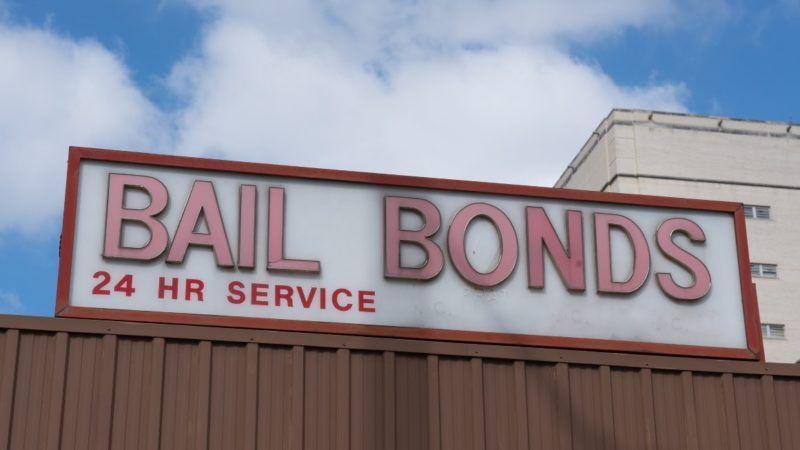California Judges Set Bail at $0 for Misdemeanors, Low-Level Felonies Amid Coronavirus Pandemic
New emergency rules attempt to slow down justice system to keep people apart.

The Judicial Council of California, the body which sets the rules for the state's judicial system, has announced a suite of temporary statewide court rules intended to "flatten the curve" and reduce the spread of COVID-19 by reducing jail populations and courtroom interactions.
As of today, 53 California prison officials and 18 inmates have tested positive for COVID-19. No inmates in state prisons have died. Those figures do not include the many local jails scattered across the state that are now seeing infection outbreaks among both prisoners and staff.
California has been working on plans to release as many as 3,500 inmates early over the next two months, and there's pressure to increase that number to further reduce the spread of the infection. California has 120,000 inmates and the state's own medical data says that more that one third of them have preexisting health risks that could make a COVID-19 infection more serious.
On Monday, the Judicial Council of California put out a list of 11 temporary regulations intended to help tamp down on human interactions during the pandemic. They include:
- Suspending the entry of defaults in eviction cases.
- Suspending judicial foreclosures.
- Allowing courts to require judicial proceedings and court operations be conducted remotely, with the defendant's consent in criminal proceedings.
- Adopting a statewide emergency bail schedule that sets bail at $0 for most misdemeanor and lower-level felony offenses.
- Allowing defendants to appear via counsel or remote technologies for pretrial criminal hearings.
- Extending the time frames for some temporary restraining orders.
- Extend the statutes of limitations governing civil actions.
- Allowing electronic depositions in civil cases.
While these new rules won't do much to relieve crowding in state prisons, the temporary bail reform measure will help keep more people out of local jails. The new rules also eliminate bail demands for parole violators in most misdemeanor and many felony cases. Bail will still be permitted for more severe and violent cases under an emergency schedule provided in a list of 13 categories of exceptions.
The new rules also apply to persons in pretrial custody, which may result in the release of numerous people currently sitting in local jails simply because they couldn't afford to pay bail. In 2018, California passed a law that was supposed to eliminate cash bail across the state, but representatives of the bail bond industry forced the issue onto a ballot referendum to be decided in November, so right now cash bail is still demanded in some state courts.
These rules will remain in place until the governor declares an end to the COVID-19 pandemic emergency, and will sunset 90 days after that declaration.
In recent days, we've seen police officers responding thoughtlessly to "stay at home" orders by arresting and citing people who are not actually spreading COVID-19. The Judicial Council of California has offered a better approach for law enforcement to follow: Amid a pandemic, officers should refrain from reaching for both the handcuffs and the ticket book unless such actions are absolutely necessary.
Read the full orders here.


Show Comments (11)